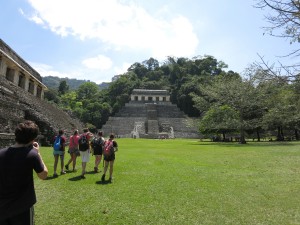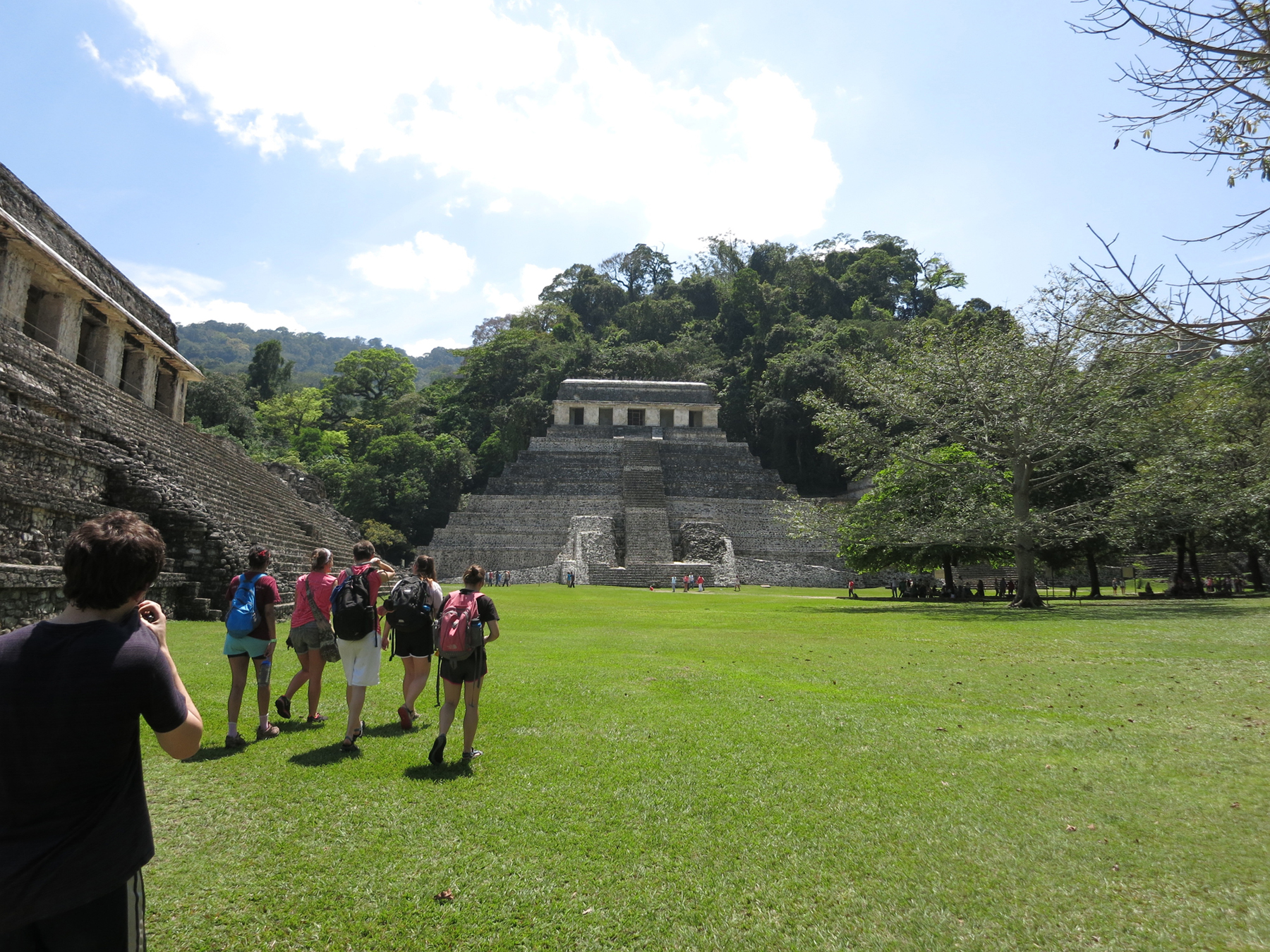
Bob Gitter, professor of economics, said he suggested a trip to Mexico so students in his Mexican Migration Experience travel learning course could see why people migrate and the impact that migration has on those who stay behind.
“I wanted the students to better understand the causes and consequences of migration. It is not enough to teach the concepts through readings, videos and lectures,” Gitter said.
“Going from Delaware to Mexico is like going from black and white to color. The light and bright colors make one feel so alive.”
Senior Sarah Hartzheim, who went on the Travel Learning Course, said the people are proud of migrants because they have to work so hard to save the money used to migrate.
“I studied the incomes and expenses of families, and finding the $2000 USD required to pay a coyote to take someone across the border is impossible for many,” Hartzheim said.
Hartzheim also said they migrate for the prospect of new possibilities such as owning businesses and land and although the people felt fortunate to have migrated to the U.S., no one she spoke with had wanted to stay in the country.
“Many said they would migrate again for a few years if it was easier to do so; but they all loved their towns and their way of life, and only went to the U.S. as a way to improve their lives in Mexico- not to stay there permanently,” she said.
Professor of philosophy Shari Stone-Mediatore’s spring break travel learning course, “Modernity & Colonialism,” examines how European Enlightenment notions of the links between European modernity and colonialism.
Stone-Mediatore said she chose to travel to a Zapatista community in Chiapas, Mexico with nine students and co-chaperone professor John Stone-Mediatore because the Zapatistas have challenged the authority of U.S. and European-dominated forms of progress.
According to Stone-Mediatore, Zapatistas are indigenous groups in Chiapas, Mexico, who own historic territories and govern their own communities. They consider the official Mexican government to be an illegal government, because the Mexican government has cancelled the constitutional amendment that protects indigenous communal land.
According to senior Jessica Brewer, the group spent the trip living as the Zapatista do.
“We slept in hammocks, ate only what was local, cooked over open fires, used squat toilets, bathed in the river. It was a very refreshing lifestyle for the week that we were there,” Brewer said.
The Zapatistas have established their own system of local democracies across Chiapas, with ordinary men and women regularly rotating on and off governing councils and with substantial autonomy for each community.
“I believed that we can learn a great deal from the people living in Zapatista communities about democracy, diversity, and human dignity that cannot be reduced to book knowledge,” Stone-Mediatore said.
“Instead of seeking state power, the Zapatistas have called on people across Mexico to set up their own grassroots democracies, ‘good governments,’ to replace the official illegal government,” she said.
Stone-Mediatore said the Zapatistas are known for covering their faces with black masks or bandanas.
A reason for this is to protect their identities from paramilitary groups, who are paid by the state to terrorize and assassinate Zapatistas.
“Symbolically, it also represents the idea that the leaders can be anyone; and it provokes the question of who is really masked, the campesinos who hide their faces with ski masks, or the governments that hide behind paramilitary groups and mercenaries?” she said.
